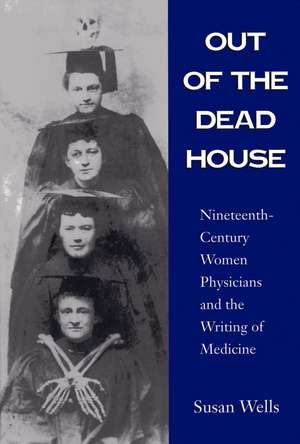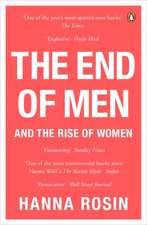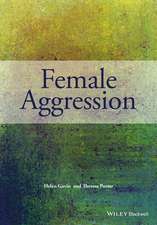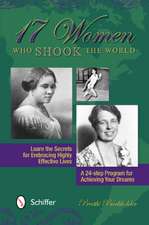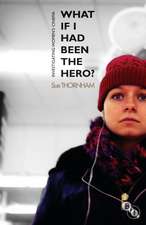Out of the Dead House: Nineteenth-Century Women Physicians and the Writing of Medicine
Autor Susan Wellsen Limba Engleză Paperback – 12 mar 2001
In the last decades of the nineteenth century, two thousand women physicians formed a significant and lively scientific community in the United States. Many were active writers; they participated in the development of medical record-keeping and research, and they wrote self-help books, social and political essays, fiction, and poetry. Out of the Dead House rediscovers the contributions these women made to the developing practice of medicine and to a community of women in science.
Susan Wells combines studies of medical genres, such as the patient history or the diagnostic conversation, with discussions of individual writers. The women she discusses include Ann Preston, the first woman dean of a medical college; Hannah Longshore, a successful practitioner who combined conventional and homeopathic medicine; Rebecca Crumpler, the first African American woman physician to publish a medical book; and Mary Putnam Jacobi, writer of more than 180 medical articles and several important books. Wells shows how these women learned to write, what they wrote, and how these texts were read.
Out of the Dead House also documents the ways that women doctors influenced medical discourse during the formation of the modern profession. They invented forms and strategies for medical research and writing, including methods of using survey information, taking patient histories, and telling case histories. Out of the Dead House adds a critical episode to the developing story of women as producers and critics of culture, including scientific culture.
Susan Wells combines studies of medical genres, such as the patient history or the diagnostic conversation, with discussions of individual writers. The women she discusses include Ann Preston, the first woman dean of a medical college; Hannah Longshore, a successful practitioner who combined conventional and homeopathic medicine; Rebecca Crumpler, the first African American woman physician to publish a medical book; and Mary Putnam Jacobi, writer of more than 180 medical articles and several important books. Wells shows how these women learned to write, what they wrote, and how these texts were read.
Out of the Dead House also documents the ways that women doctors influenced medical discourse during the formation of the modern profession. They invented forms and strategies for medical research and writing, including methods of using survey information, taking patient histories, and telling case histories. Out of the Dead House adds a critical episode to the developing story of women as producers and critics of culture, including scientific culture.
Preț: 145.88 lei
Preț vechi: 153.55 lei
-5% Nou
Puncte Express: 219
Preț estimativ în valută:
27.91€ • 29.22$ • 23.10£
27.91€ • 29.22$ • 23.10£
Carte tipărită la comandă
Livrare economică 05-19 aprilie
Preluare comenzi: 021 569.72.76
Specificații
ISBN-13: 9780299171742
ISBN-10: 0299171744
Pagini: 328
Dimensiuni: 152 x 229 x 20 mm
Greutate: 0.43 kg
Ediția:1
Editura: University of Wisconsin Press
Colecția University of Wisconsin Press
ISBN-10: 0299171744
Pagini: 328
Dimensiuni: 152 x 229 x 20 mm
Greutate: 0.43 kg
Ediția:1
Editura: University of Wisconsin Press
Colecția University of Wisconsin Press
Recenzii
"A highly original contribution to studies of the relationship between gender, medicine, and science, offering fresh insights regarding the entrance of women into the medical profession. Wells's nuanced story will appeal to literary scholars, medical historians, and all readers interested in revisiting this complex and rewarding terrain."—Regina Morantz-Sanchez, author of Conduct Unbecoming a Woman: Medicine on Trial in Turn-of-the-Century Brooklyn
Notă biografică
Susan Wells is professor of English at Temple University. She is the author of Sweet Reason: Rhetoric and the Discourses of Modernity and The Dialectics of Representation.
Descriere
In the last decades of the nineteenth century, two thousand women physicians formed a significant and lively scientific community in the United States. Many were active writers; they participated in the development of medical record-keeping and research, and they wrote self-help books, social and political essays, fiction, and poetry. Out of the Dead House rediscovers the contributions these women made to the developing practice of medicine and to a community of women in science.
Susan Wells combines studies of medical genres, such as the patient history or the diagnostic conversation, with discussions of individual writers. The women she discusses include Ann Preston, the first woman dean of a medical college; Hannah Longshore, a successful practitioner who combined conventional and homeopathic medicine; Rebecca Crumpler, the first African American woman physician to publish a medical book; and Mary Putnam Jacobi, writer of more than 180 medical articles and several important books. Wells shows how these women learned to write, what they wrote, and how these texts were read.
Out of the Dead House also documents the ways that women doctors influenced medical discourse during the formation of the modern profession. They invented forms and strategies for medical research and writing, including methods of using survey information, taking patient histories, and telling case histories. Out of the Dead House adds a critical episode to the developing story of women as producers and critics of culture, including scientific culture.
Susan Wells combines studies of medical genres, such as the patient history or the diagnostic conversation, with discussions of individual writers. The women she discusses include Ann Preston, the first woman dean of a medical college; Hannah Longshore, a successful practitioner who combined conventional and homeopathic medicine; Rebecca Crumpler, the first African American woman physician to publish a medical book; and Mary Putnam Jacobi, writer of more than 180 medical articles and several important books. Wells shows how these women learned to write, what they wrote, and how these texts were read.
Out of the Dead House also documents the ways that women doctors influenced medical discourse during the formation of the modern profession. They invented forms and strategies for medical research and writing, including methods of using survey information, taking patient histories, and telling case histories. Out of the Dead House adds a critical episode to the developing story of women as producers and critics of culture, including scientific culture.
